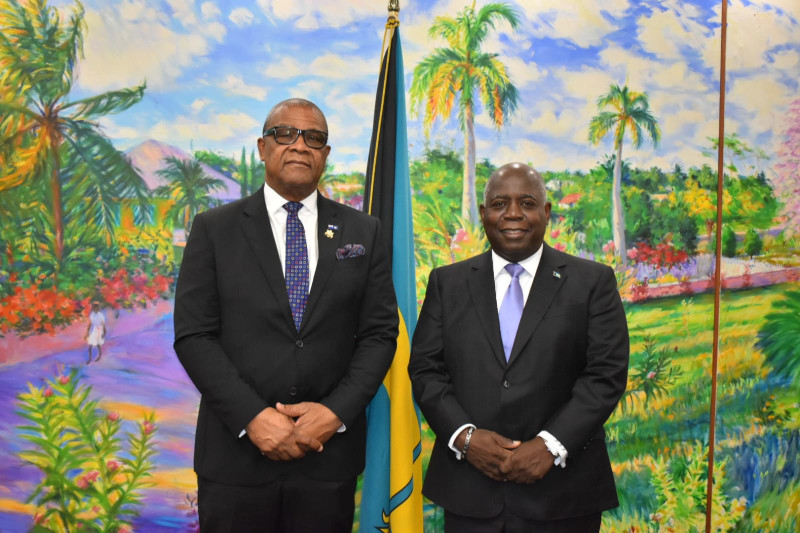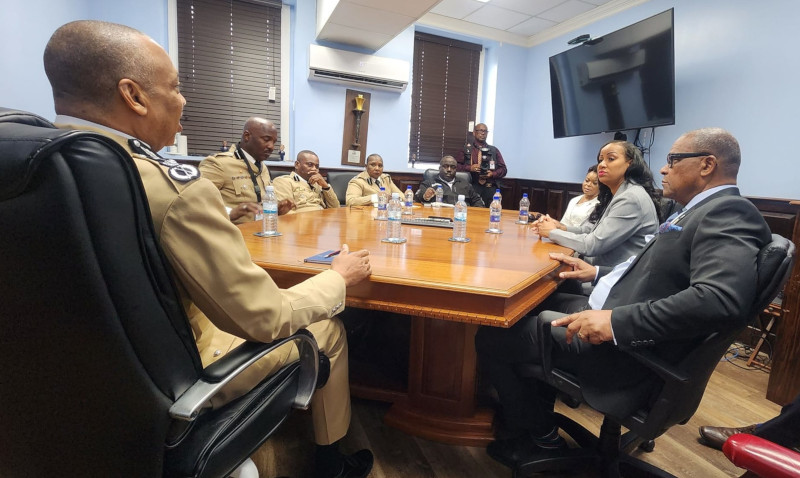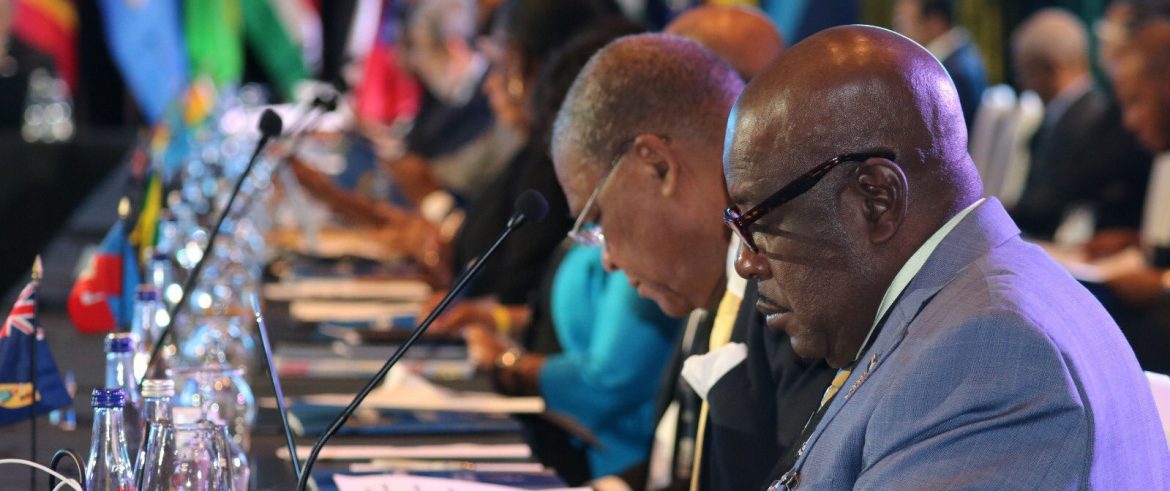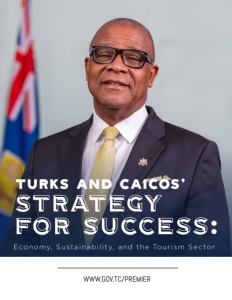Turks and Caicos’ Strategy for Success
Economy, Sustainability, and the tourism sector
Renowned for its tourist appeal, the Turks and Caicos Government boasts initiatives that capitalize on its residents and local assets
Turks and Caicos are widely known for being home to the best beaches in the world. With its majestic white sand beaches and crystal-clear ocean waters, it is the go-to destination in the Caribbean. Already recognized as one of the premier tourist destinations internationally, the region is both steeped in local history and blessed with stunning natural assets.
This British Overseas Territory consists of two groups of islands in the Lucayan Archipelago: the larger Caicos Islands and the smaller Turks Islands, thus the name.
The islands’ businesses and organizations are stable, with a strong sense of sustainability and accountability. This has positioned the country uniquely and made its economy robust.
“In terms of economy, ours is very strong compared to neighboring countries in the region. This has meant healthy direct foreign investments, and the country has a significant draw given its size and population,” says Washington Misick, Premier of Turks and Caicos.
Like many countries in the region, Turks and Caicos is one of the most tourism-dependent destinations in the world. This heavy dependence on tourism for its economy has meant that everyone is focused on sustaining the region’s natural beauty and leveraging those assets, which is the pristine natural environment.
There is a focus on triple-bottom-line sustainability, including economic growth, social cohesion, and protecting the environment. Turks and Caicos depend heavily on its natural capital, which runs a significant part of the economy.
Over the last few years, the country’s economy has been developing strongly. But there have been some challenges, recently, namely severe hurricanes in the area.
Like the rest of the world, Turks and Caicos are affected by the lack of international travelers during hurricane season, but recovery is always swift.
The government and tourism sector work together to ensure that buildings meet specific codes and requirements to withstand severe hurricanes. This continuous collaboration provides an excellent partnership between the two sectors on the islands, allowing external issues to be dealt with efficiently.
“Our government and private sector’s strong relationship demonstrates that we possess a strong resilience in terms of ability to physically recover,” says Premier Misick.

Premier Honourable Charles Washington Misick and Prime Minister of The Bahamas Rt. Honourable Phillip ‘Brave’ Davis
More indicators of the strong economy are the current projects on the go, including investments in the tourism sector. And all the projects have a triple-bottom-line sustainability focus.
This requires operating under tremendous pressure to complete work faster without hurting the most crucial island asset – its environment.
With this being said, Turks and Caicos know that while it is blessed with natural beauty, it needs to diversify its revenue streams. This vision is a long-term objective that the islanders are working towards.
“One of the main reasons we’re able to do so well is our proximity to our main market source, nature. But now we’re looking at supplementing what our island naturally offers with activities and attractions,” says Premier Misick.
In the next few weeks, the islands will revamp and transform the way they do tourism. Turks and Caicos Islands are becoming more modern in their destination marketing and management to be more intentional about reaching their target demographic. It’s also planning to be more inclusive in its growth, allowing more domestic businesses to participate in the tourism sector.
In many scenarios, capital is exported out of Caribbean nations to big international companies. Turks and Caicos Islands want, however, to retain the tourist dollars domestically.
Currently, one of the country’s most significant initiatives is focusing investments into small businesses, from agribusiness to the blue and orange economy, and feeding back into the tourism sector, allowing Turks and Caicos to retain tourism money in the country. This requires close ties between business and government.
Businesses in Turks and Caicos Islands have benefitted from their good relationship with the government, which was tested regarding the COVID plan.
The government, with businesses, cautiously closed down borders and operations early, adopting a strict vaccination program. This meant the country could open up for business sooner and implement financial leniencies where possible.
“By the middle of last year, 88% of the population were vaccinated twice. We assisted businesses by reducing expenses, and certain taxes, particularly import taxes and lowering STEM duties, land transfers, and providing grants for small businesses,” says Premier Misick.
The government has also assisted local islanders with expenses by contributing $2,500 over the last few years. And these grants have not stopped due to the inflation issue caused by the conflict between Ukraine and Russia.
Another element where the government has assisted businesses is reducing the import duties on products that keep the hospitality industry fresh and clean. Also, they have waived the duties on new construction projects.
Collaborating with businesses and sticking to the principles of inclusive growth means there is a healthy relationship between all parties.
As an overseas territory of the United Kingdom, the role of the Premier is to focus on domestic matters and management, while the UK is responsible for international affairs and security. It’s important that the Premier maintains a good working relationship with the UK and ensures that all frictions are resolved constructively.

Turk and Caicos Islands have eight ministries that all operate with the same level of responsibilities regarding various social and economic needs.
“One of my primary roles is to ensure all policies are signed and a good strategy is in place. Our mandate on promises we made to the people of Turks and Caicos Islands matters; they vote for us,” says Premier Misick.
Another element of Premier Misick’s role is to measure and keep a record of how the government delivers on its promises to the citizens of Turks and Caicos Islands, or as Premier Misick puts it, “We need to deliver what the people of Turks and Caicos Islands call their best life.”
Turks and Caicos Islands are focused on transitioning to a modern economy by utilizing technology. A significant reason for this adaptation is the simple fact that there are not enough people on the islands to carry out all the government functions required.
For future development to take place, locals must employ all the technological assets at their disposal. A move that the government has made to accommodate this, is the introduction of a single national ID that will make it easier for people to work across all sectors.
With a country of its size, Turks and Caicos Islands were bound to have issues with filling employment roles. Currently, roughly two-thirds of the population are from other parts of the world, including many from neighboring nations.
These shortages extend to semi- and unskilled labor, but the country struggles to fill middle management, technological, and scientific fields the most.
In generations past, the island nation lost a lot of people to emigration.
“Turks and Caicos have a very large diaspora, with many people moving to neighboring countries and throughout the USA, as well as the rest of the world. We’re now setting up a diaspora program to attract the offspring of those locals back,” says Premier Misick.
Another strategy the country is rolling out to combat the global issue of skilled labor shortages is through project management and employing virtual employees. By recruiting virtually, the government can give special attention to critical deliverables and reduce the cost of services rendered.
As the environment is vital to the nation’s future, the first step taken by the government is to map the entire territory and identify zones for tourism, industry, agriculture, and more.
The Department of Environment and Coastal Resources (DECR) has been extremely successful. The DECR is responsible for the management of terrestrial and marine protected areas, wildlife, climate change; and all natural resources are managed in a sustainable manner. The UK has provided significant assistance to the Turks and Caicos Islands through the Darwin plus grant system, Conflict, Stability and Security Fund (CSSF) and most recently the Blue Belt Programme.
The DECR’s major focus is balancing the sustainable use of the environment with the ever-present demand for economic growth.
Turks and Caicos Islands are also in the process of upgrading affordable housing on the island and ensuring that these communities are safe while sticking with the sustainability program.
“We’re working on all these areas to make sure the ambition for developing islands includes all the elements of economics, the environment, and society,” says Premier Misick.
The country informs the globe of what’s on offer through its international marketing initiatives. This push started in the 1990s when the country lagged behind other destinations. But with the government investment in improving homes, helping businesses, and more, the country is now firmly a five-star destination.
With this strong position, the government has set up an organization called TC Invest, which focuses on promoting investments and encouraging more support for island businesses.
Another project is called TCI Finance, which is currently working to diversify the economy and make the nation a preferred FinTech destination. This aligns with the country’s desire to pivot and encourage more consultancy work.
Moving into the future, Turks and Caicos Islands will focus on providing a domestic investment and savings institution, as currently, most of the available facilities are foreign. The government has set aside $7,5 million to establish this new institution.
This is one of the larger projects and has been in the works for some time.
The next major project for the island nation is expanding the affordable housing stock. And linking to the development of housing is investing in Human Capital by establishing a hospitality school in the country.
Premier Misick concludes by saying, ”We’re looking forward to achieving these top priorities in 2023 and 2024.”
AT A GLANCE
Turks and Caicos Office of the Premiere
What: The Turks and Caicos Government responsible for economic development, tourism, and direct initiatives for its valued residents
Where: Turks and Caicos in the Caribbean region
Website: https://www.gov.tc/premier




 This information will never be shared to third parties
This information will never be shared to third parties